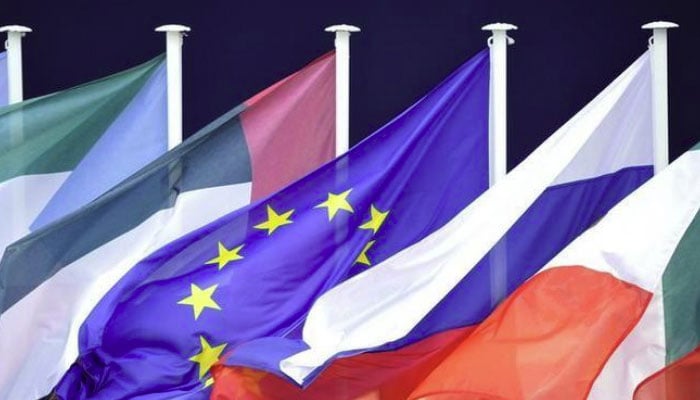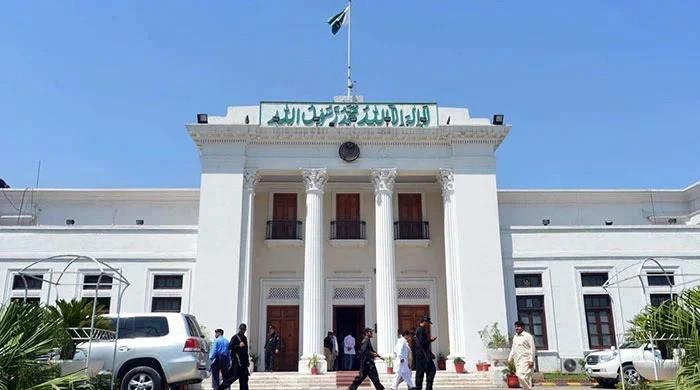G20 financial leaders to speak against unfair trade practices: draft communique
The communique says the ministers and central bankers 'reiterate the conclusions of our Leaders on trade at the Hamburg Summit'
March 14, 2018

BRUSSELS: The world’s financial leaders will pledge to fight unfair trade practices and stress the role of global trade rules when they meet on March 20, as the United States raises the threat of a global trade war by imposing import tariffs on steel and aluminium.
Finance ministers and central bank governors of the world’s 20 biggest economies will discuss on March 19-20 in Buenos Aires the risks to the improving global economic outlook, including “a retreat to inward looking policies”.
A draft communique prepared for the meeting, seen by Reuters, says the ministers and central bankers “reiterate the conclusions of our Leaders on trade at the Hamburg Summit, and are working to strengthen its contribution” to their economies.
Last week, US President Donald Trump announced he would impose import tariffs of 25 percent on steel and 10 percent for aluminium to protect domestic metals production that he said was vital to national security.
Canada and Mexico are exempt from the tariffs. The European Union has been pushing to be exempted too, but so far without success.
The move seems to clash with the declaration signed by G20 leaders, including Trump, in Hamburg last July which said G20 countries would fight protectionism including all unfair trade practices, although it also said they recognise the role of “legitimate trade defence instruments”.
Angela Merkel, who hosted the G20 summit last year, said at the time agreeing the joint position on trade had been “extraordinarily difficult” because of the United States.
The US tariffs essentially go against what is called a “rules-based international trading system” in which disputes are negotiated through the World Trade Organisation rather than by unilateral action.
The G20 leaders' statement from Hamburg stresses that point:
“We underline the crucial role of the rules-based international trading system. We note the importance of bilateral, regional and plurilateral agreements being open, transparent, inclusive and WTO-consistent, and commit to working to ensure they complement the multilateral trade agreements.”
The draft communique for Buenos Aires also reiterates the usual phrase that “excessive volatility or disorderly movements of exchange rates can have adverse implications for economic and financial stability.”
The financial leaders are to reiterate their pledge to refrain from competitive devaluations and not target exchange rates for competitive purposes.
But the communique also introduces new language on exchange rates, saying that “strong fundamentals, sound policies and a resilient international monetary system are essential to the stability of exchange rates”, but also that “flexible exchange rates, where feasible, can serve as a shock absorber”.











